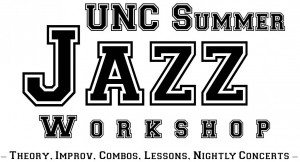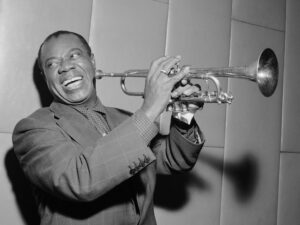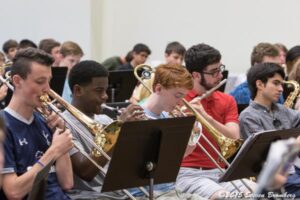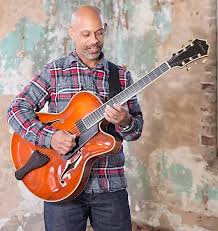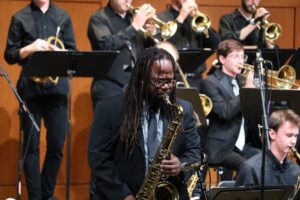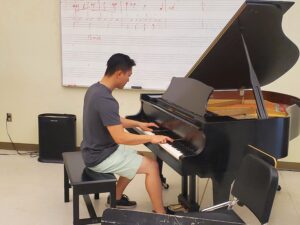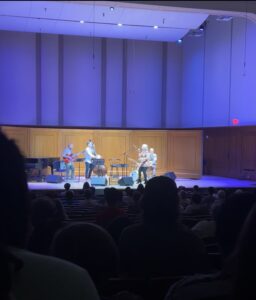“If people are passionate enough,
they are going to make it wherever they want to go.”

The windows of a coffee shop separate us from the bustling life of Franklin Street. Rachel Therrien still smiling as her 2016 album Pensamiento: Proyecto Colombia plays over the shop’s stereo, I set my scripted questions aside. Therrien tells her story and captures the essence of jazz with ease and brevity.
Therrien, a Canadian-born musician, performs and teaches as a guest artist for the UNC Summer Jazz Workshop. Her story reflects a dominant theme articulated in the workshop’s classes and performances: Jazz is a musical and cultural conversation.
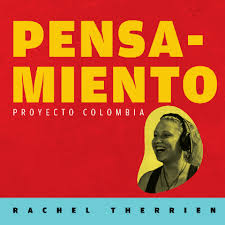
Raised in the French-speaking region of Quebec, Therrien recalls an early love for music. While she recounts her formal musical education, she found her own among Quebec’s huge diaspora of West African community.
“I owe a lot to those cultures,” she says. “I learned how to improvise with them.” Unlike the notation and theory taught in a classroom, she says, “there are no charts, you learn by ear.” After a brief pause, she emphasizes, “They open with solos in every tune.”
Welcomed by the foreign community, Therrien faced challenges as a university student. The professors were excellent musicians, yet she notes that “they were not necessarily teachers.” They harped on how hard the career would be, how difficult it would be to make a living — she proved them wrong.
After two years of university, she left to study at the Instituto Supêrior de Arte in Havana. In Cuba, teachers make less than musicians — this means they really enjoy teaching. Therrien says with conviction: “If you are a teacher, if you are a real teacher, you are going to see the level of passion in your student.”
While no jazz musician myself, her passion for music radiated throughout our conversation and only increased as she explained the backstory of Pensamiento: Proyecto Colombia, the album playing in the background of the coffee shop.

“What I wanted to do was an experiment putting Jazz musicians with Afro-Colombian musicians in a room, having a musical conversation” After touring in Colombia, she stayed behind to record her side project.
Starting with the rhythms she knew, Therrien also explore the two musical currents running in Colombia. The Atlantic coast region differed from the poorer, less exported Pacific coast style. After weeks of recruiting musicians with only a flip phone and a list of contacts, Therrien had 12 committed musicians: four from Columbia’s Pacific coast, four from the Atlantic coast, and four jazz players.
With a laugh, she describes how they managed to all cram into the tiny studio. The bass was in the closet, the marimba was in the office and one musician played while sitting on the toilet bowl.
I asked if she felt nervous about the project, if she felt nervous not knowing any of the musicians prior to the recording. She replied with a smile, “The process is beautiful, if it doesn’t work out — great.”
At this moment, Therrien touches upon something unique about jazz. When performing Jazz, the process is more than reading notes from a page. As Therrien notes, “Jazz comes from a philosophy.” It comes from people with “different backgrounds having a conversation together through improvisation.”
Students of jazz history in the UNC Summer Workshop learn that jazz is an American art form. While it’s important to know the origins of jazz, Therrien’s passion for the art looks forward to the future as well. “What I wanted to show is that jazz is not just the evolution of that American concept, it can happen again,” she says.
This week at the UNC Summer Jazz Workshop, it is happening again — thanks to international musicians like Rachel Therrien performing and teaching with UNC’s faculty and students.
